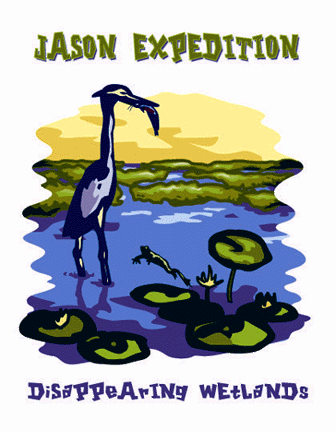 |
In simple terms, a wetland is basically any land that is wet. The Ramsar Convention, the main international resource on wetland protection and conservation, recognizes 31 natural wetland types - from marshes and bogs, to mountain springs, lakes, and rivers, to estuaries, the seashore, coral reefs, and more.
Wetlands vary dramatically from one another, but the underlying commonality is the word "wet" - whether constantly wet and under water, or only temporarily wet, drying up during certain parts of the year - or simply areas of waterlogged soil where the water lies just below the surface such as in marshes.
About 6 percent of the world's surface is covered in wetlands. These wonderful natural habitats house a great variety of animal and plant life, each having its own unique vegetation types (reeds, mangroves, etc) and each an intriguing and productive ecosystem.
Wetlands serve a variety of purposes and the preservation of these threatened ecosystems is of utmost importance. Wetlands are breeding grounds for scores of wonderful plants and animals, some of which are endangered, themselves.
Wetlands are also generous with humanity - storing and purifying water, controlling soil erosion, regulating floodwaters and streams, and recharging the groundwater. In other words, they literally protect humans from natural threats - and offer drinking water to its peoples. They also offer a variety of recreational activities - from fishing to boating and more. Wetlands serve as living science - habitats full of important and interesting lessons in environmental education.
Wetlands are not just areas of beautiful and intriguing, but dispensable, nature. They are crucial to their surrounding environments and vital to the earth and its peoples, as well as to the plant and animal life housed within these complex ecosystems. Therefore, it is important that humans learn to balance their own needs with the ever-increasing need for wetland conservation. Education and research of these complex ecosystems is vital, and scientists are working persistently at learning more about these natural environments, and how humans can coexist peacefully and fruitfully with them.
"Wetlands are unique ecosystems found throughout the world that provide habitats for an incredible diversity of plants and animals. They are nurseries for countless species of fish and shellfish that we depend on for food, protect vulnerable coastlines from hurricanes and storm surges, and help filter and purify the small amount of freshwater that is found on our planet." - Jason Expedition.
Journeying into the expansive, but rapidly diminishing wetlands of Louisiana, The Jason Expedition's 2005 team of student and teacher Argonauts and host researchers are paving the way for further research, exposing classrooms around the world to the wonders of wetlands and to the need for preserving them. They are learning and sharing invaluable lessons of science in action.
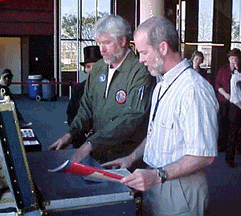 |
http://www.flightofdiscovery.com/press.html#A2 |
How is your organization involved with the Jason Project?
OMSI has been a Primary Interactive Network Site (PINS) for the JASON Project since 1999. PINS are major partners with the JASON Foundation for Education and provide curriculum training and professional development for teachers involved in JASON. This year we have trained 250 teachers in the Disappearing Wetlands Expedition. We also serve as the host to JASON classrooms for the annual live telepresence broadcast from the Expedition research site for that year and nominate Student and Teacher Argonauts who, if selected, work with researchers and serve as correspondents during the brodcast.
OMSI sent a Student Argonaut, Sun Jin Lee, on the Frozen Worlds Expedition to Alaska and a Teacher Argonaut, Heather Renz, to Panama for Rainforests at the Crossroads.
How do you feel about the Jason Project and its Expeditions?
If I were in the classroom right now I would definitely be a JASON teacher. JASON puts science in context for students; science is not just one more isolated subject in school. The curriculum is very good at relating real-world problems to the research designed to answer questions about that problem and how it might be solved.
What good do you think the Jason Project and Expeditions bring about for participating schools and teachers? And for those involved physically in the expedition?
For students in the classroom it connects them with a learning community via technology with a purpose. For teachers it opens a whole new way to teach using technolgy not just as a supplement to what they are already doing but as a necessary tool without which the same outcomes could not be achieved. And for Argonauts who actually go on the Expeditions I can honestly say from personal contact that it is a life changing experience.
And of course, for the students partaking in this educational experience... What do they take from this kind of learning tool? What can the Jason project teach them?
There are a couple of important things that JASON illustrates for kids:
1) Science is something that people do, science is a verb. And it is done by all types of people not just white men with beards and glasses in lab coats.
2)Science isn't an isolated topic. It is interwoven through every facet of life since every day you must make decisions and ideally those decisions are based on collected information. That's the basic premise behind scientific inquiry.
How many schools and students would you say are participating from your region? What about last year?
This year we have about 250 total trained participants including public librarians who help make JASON a community learning project in rural schools throughout Oregon. That equates to almost 10,000 students learning about wetlands and their importance. Last year we had about 200 participating teachers so JASON@OMSI is expanding!
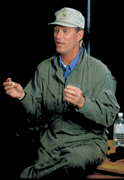 Dr. Robert Ballard
Dr. Robert Ballard
Chief Scientist and Founder
JASON Foundation for Education
Marine Geologist and Oceanographer
Expedition Leader
 Dr. Jacoby Carter
Dr. Jacoby Carter
Ecologist, United States Geological Survey (USGS)
Research focus: How computer modeling can help scientists better understand the interactions between species and their environments in wetland ecosystems.
Dr. Marco Giardino
Remote Sensing Scientist
Chief, Earth Science Applications at NASA
Research focus: How scientists use satellite remote sensing to monitor changes in wetlands.
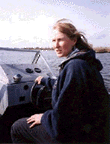 Dr. Denise Reed
Dr. Denise Reed
Geologist
Professor of Geology and Geophysics
Research focus: Dynamics of marsh building.
Dr. Earl Melancon
Marine Scientist
Research focus: Short- and long-term effects of wetland restoration projects on the oyster fishery.
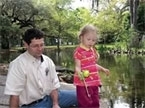 Mark Schexnayder
Mark Schexnayder
Marine Biologist
Research focus: How Louisiana’s wetlands support a diversity of aquatic species.
Rachel Sweeney
Coastal Restoration Project Manager
National Marine Fisheries Service
National Oceanic and Atmospheric Administration (NOAA), Louisiana
Research focus: Best methods to restore Louisiana’s coastal wetlands.
Kristen Goodrich
Student, University of Miami, Florida
JASON XI Student Argonaut
Ikedinachi “Ike” Akagha
Student, U.S. Air Force Academy Prep School, Colorado
JASON XI Student Argonaut
Page created on 3/15/2010 9:34:58 AM
Last edited 1/5/2017 9:32:49 PM
